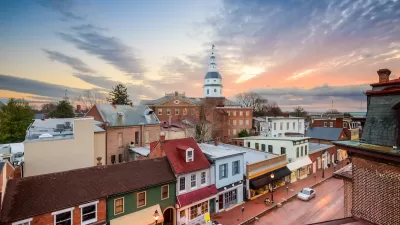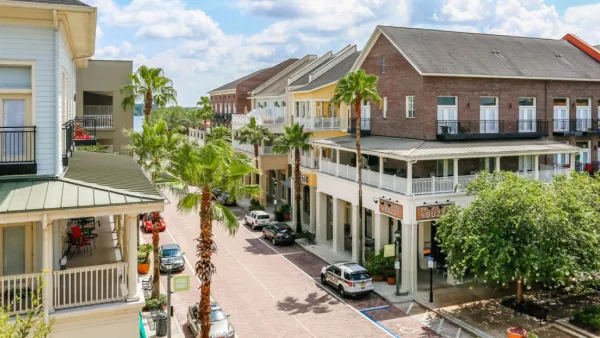Matt Bevilacqua talks shop with Emily Talen, whose new book explores the way land use regulation has shaped American cities and how it's all about to change.
Land use regulation may not be the sexiest facet of urban planning practice, but when it comes to defining the shape and character of our cities, it takes center stage. Urban planning professor and Journal of Urbanism co-editor Emily Talen considers the role of land use rules in her new book, City Rules: How Regulations Affect Urban Form.
Talen observes, for instance, the "radically negative consequences" of American planners' traditional focus on separation in land use planning, tracing that focus to America's unique development history: "The U.S. had a lot of open space when it first developed. People had this notion of unlimited capacity to just spread out... the U.S. is composed of so many heterogeneous groups, and rather than
trying to live together in close proximity, we translated all that
diversity to uncomfortableness. We translated it into just moving away
from one group to another."
The legacy of that mindset persists in planners' ongoing struggle with NIMBYism. Fortunately, for Talen, the answer is simpler than you'd expect: "I think the key is good design. People have been legitimately griping
about some mixed-use [development]: That could be a 7-11, with a huge
parking lot in front of it, next door to you with glaring lights all
night. The devil is in the details."
"The irony is that most people - when you show them a wonderful design of
mixed-use, where things fit together, and where it produces a vibrancy
and quality of place - people love it! They flock to cities that have
that kind of diversity. So, it really comes back to bad rules, and
having rules that don't protect those design qualities."
Ultimately, the way to better design may begin with a shift toward form-based codes. "Form-based coding, I think, is taking off. I wish it would go faster. I
wish more people would adopt it. But there's really been progress in the
last year with these major American cities taking it on. Yeah, I'm
hopeful. I think it will happen."
FULL STORY: INTERVIEW: Emily Talen and the Rules That Shape Cities

Planetizen Federal Action Tracker
A weekly monitor of how Trump’s orders and actions are impacting planners and planning in America.

Maui's Vacation Rental Debate Turns Ugly
Verbal attacks, misinformation campaigns and fistfights plague a high-stakes debate to convert thousands of vacation rentals into long-term housing.

San Francisco Suspends Traffic Calming Amidst Record Deaths
Citing “a challenging fiscal landscape,” the city will cease the program on the heels of 42 traffic deaths, including 24 pedestrians.

Defunct Pittsburgh Power Plant to Become Residential Tower
A decommissioned steam heat plant will be redeveloped into almost 100 affordable housing units.

Trump Prompts Restructuring of Transportation Research Board in “Unprecedented Overreach”
The TRB has eliminated more than half of its committees including those focused on climate, equity, and cities.

Amtrak Rolls Out New Orleans to Alabama “Mardi Gras” Train
The new service will operate morning and evening departures between Mobile and New Orleans.
Urban Design for Planners 1: Software Tools
This six-course series explores essential urban design concepts using open source software and equips planners with the tools they need to participate fully in the urban design process.
Planning for Universal Design
Learn the tools for implementing Universal Design in planning regulations.
Heyer Gruel & Associates PA
JM Goldson LLC
Custer County Colorado
City of Camden Redevelopment Agency
City of Astoria
Transportation Research & Education Center (TREC) at Portland State University
Jefferson Parish Government
Camden Redevelopment Agency
City of Claremont





























